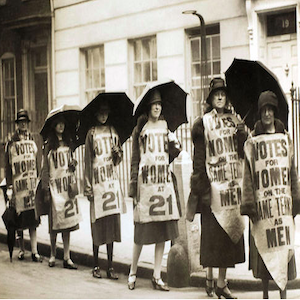LSE Digital Library
A wide-ranging digital archive containing the London School of Economics’ collection of primary source material, the LSE Digital Library is a valuable resource for those looking to learn more about the influential university as well as British and global history more broadly. Though it contains a substantial amount of material, it is nevertheless still a work in progress as the librarians and archivists at the LSE Library continue to update the digital archive with newly-digitised material as well as born-digital material.
Intuitive and easy to navigate, the website only has four tabs: ‘Home’, ‘Browse’, ‘Search’, and ‘Exhibitions’ alongside a search bar and more discreet links to an about page and a link to the main LSE Library website. The front page serves as a microcosm for the rest of the site, providing snippets of the available material in terms of the available collections, exhibitions, and news. Clicking on ‘Browse’ brings visitors to the full list of collections which include the ‘Women’s Rights Collection’, the ‘Brexit Collection’, ‘Tales from Houghton Street: An LSE Oral History’, ‘LSE Public Lectures’, ‘Fabian Society and Young Fabians’, ‘The Papers of Lionel Robbins’, ‘The Women’s Library @ LSE’, ‘The Beaver’ (LSE’s student newspaper), ‘Poster Collections’, ‘Street Life in London’, and ‘Beatrice Webb’s Diaries’. The search section allows for keyword searching in combination with drop-down menus with various Boolean operators so that visitors can search for items more precisely. Finally, ‘Exhibitions’ features long-form multimedia exhibitions professionally curated by members of the LSE library on topics ranging from the First World War to the life and times of the suffragette Emily Wilding Davison to a history of the LSE Library itself to the study of economics at LSE from its very foundations to a portrait of the career of the prominent British economist Lionel Robbins.
Zooming in to the item level, the collection features a good mix of written records like archival material, newspapers, pamphlets, journals, magazines, and personal papers as well as more visual historical sources such as photographs and posters and of course oral history recordings. Most items (barring the oral history recordings and the recorded public lectures) are available as high-quality scans rather than transcripts and include useful meta-data such as the title of the item, its authors, a description of the item, the date of its production, subject keywords, and a reference to the original holding in the LSE Library. The oral history recordings and the recorded public lectures are available for streaming as audio files and include information such as date, duration, interviewee, interviewer, relationship to LSE, and subject keywords in the case of the former and title, speaker(s), chair, date, venue, duration, subject keywords, corporate name, and a link to the event web page in the case of the latter.
From an educational perspective, there are plenty of options available to teachers looking to use the LSE Digital Library. In the first instance, though there are only a limited number of exhibitions available, they could use those as primers into the study of World War I, women’s history, and British economic history before encouraging students to explore the collection to broaden out their knowledge of those topics. In addition to that, teachers can set a primary source analysis exercise that gets students to pick a single source from the collection and present on it to the rest of the class in terms of what it tells us, its strengths and weaknesses as a primary source, and the historical context of its production. Alternately, there is also the tried-and-true method of assigning the archive as a database for students writing long-form papers about the various topics covered by the extensive collection.
The LSE Digital Library is an important and valuable archive chronicling not just the history of a storied institution but also British and global history more broadly. Featuring a wonderful array of resources spanning the nineteenth, twentieth, and twenty-first centuries, researchers, educators, and students have plenty of good material to draw from in their endeavours.
